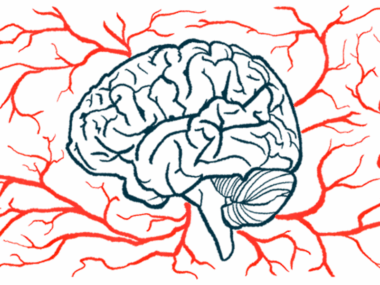Study finds large-scale disruptions in Parkinson’s gut microbiome
Some changes linked to faster progression of motor complications in patients
Written by |

The gut microbiome of people with Parkinson’s disease exhibits substantial compositional and functional shifts relative to that of healthy individuals, with some of these changes linked to a faster progression of motor issues over time, according to a new study.
“The [Parkinson’s disease] microbiome is functionally distinct from controls,” the researchers wrote, adding that these alterations “may contribute to faster development of motor complications over time.”
The researchers believe these findings lend support to a growing body of evidence that changes in the Parkinson’s microbiome — the bacteria and other microbes found in the gut — may be relevant to disease progression.
The study, “Metagenomic Analysis Reveals Large-Scale Disruptions of the Gut Microbiome in Parkinson’s Disease,” was published in the journal Movement Disorders.
Examining functional changes in the Parkinson’s gut microbiome
Accumulating evidence indicates that people with Parkinson’s disease have alterations in their gut microbiome, or the constellation of bacteria, fungi, and viruses that live in the gastrointestinal tract.
These alterations are seen early in the disease course, but it is not known whether they drive disease onset and contribute to its progression, or if they’re secondary to other disease processes.
Microbial alterations are associated with changes in levels of metabolites, or the small molecules produced from bacteria’s metabolic processes, which have also been linked to Parkinson’s.
Specifically, studies suggest that the Parkinson’s microbiome has reductions in microbes that produce short-chain fatty acids (SCFA), a type of metabolite believed to be anti-inflammatory and protective, with shifts toward an increase in others that have more toxic functions.
In the new study, a team of scientists in Canada aimed to examine functional changes in the Parkinson’s microbiome and the relationship between those changes, bacterial metabolites, and disease progression.
The study involved 197 people with Parkinson’s and 103 individuals without the disease, who served as a control group. All were recruited through a research center in Canada, and ranged in age from 40 to 85. Stool samples from the participants were analyzed for microbes and metabolites.
The results showed that people with Parkinson’s disease had fewer interactions between microbes than did those in the control group. Further, the abundance of seven types of bacteria differed between the two groups. These differences were strongest in Parkinson’s patients who had motor symptoms affecting both sides of the body similarly (symmetric).
The Parkinson’s microbiome was found to be functionally distinct from a healthy one, as a number of bacterial functions were altered in patients relative to the control group. For example, Parkinson’s patients exhibited depletions in pathways associated with degrading carbohydrates.
The researchers noted that more than half of the altered functional processes were associated with a bacteria called Faecalibacterium prausnitzii.
Functional changes linked to greater burden of motor complications
Interestingly, the results also supported previous findings suggesting a shift toward the production of toxic metabolites involved in protein degradation over the production of SCFA.
These metabolites correlated with a bacteria called Blautia obeum that was elevated in the Parkinson’s samples. The scientists thus believe B. obeum is a “probable protein degrader of interest.”
The findings suggested that the activity of B. obeum may interfere with a beneficial bacteria called Blautia wexlerae that’s linked to SCFA production.
Disease severity generally increased over time in Parkinson’s patients, with the fastest progression seen in scores for the Movement Disorder Society Unified Parkinson’s Disease Rating Scale (MDS-UPDRS) part IV. This assesses the severity of motor complications that can arise while patients are on Parkinson’s disease therapies.
Overall, a number of functional alterations observed in the Parkinson’s microbiome were correlated with a greater burden of motor complications.
Our data demonstrate that [Parkinson’s disease] is associated with a suite of gut … differences.
The scientists used the data to generate a model for predicting Parkinson’s disease and the rate of progression of motor problems. This model “showed a moderate-but-incomplete capacity to separate [Parkinson’s] and control samples,” according to the authors.
Overall, “our data demonstrate that [Parkinson’s disease] is associated with a suite of gut … differences that align with key findings from other [Parkinson’s disease] cohorts,” the researchers wrote.
While the findings suggest that microbial alterations contribute to a faster development of motor complications over time, “these data would benefit from validation in other longitudinal … cohorts,” the team concluded.




